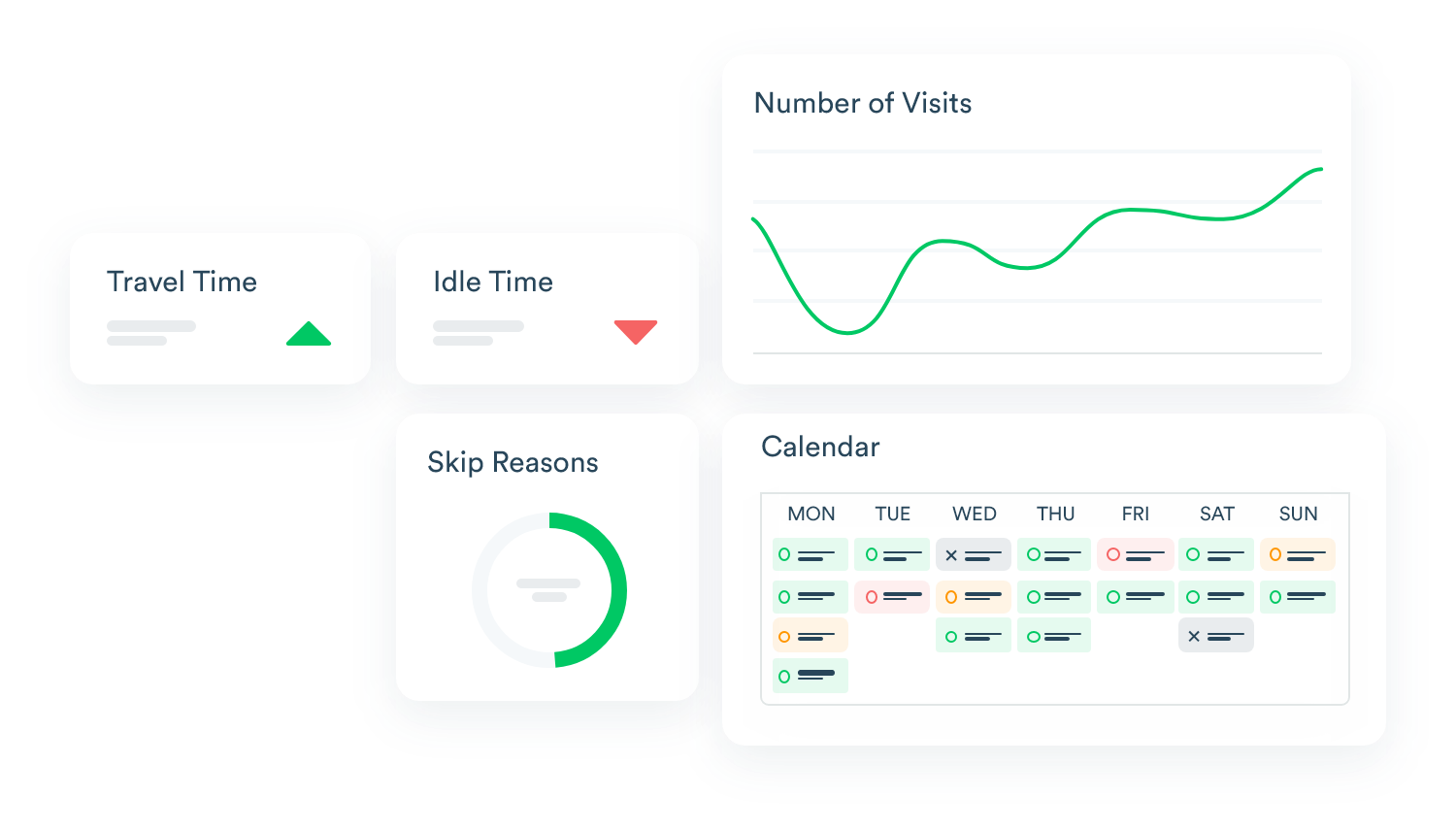Field Sales Analytics: Extracting Actionable Insights for Business Success
Businesses are increasingly leveraging their data analytics to glean insights that drive decision-making and strategic planning. Among the various dimensions where analytics play a pivotal role, field sales stands out as an area ripe for significant optimization and enhancement. Field Sales Analytics (FSA) is not just a buzzword; it’s a formidable tool in the arsenal of businesses aiming to refine their sales processes and achieve stellar growth.
This blog post explores the significance of field sales analytics in extracting actionable insights that can revolutionize the way businesses approach their sales routes and field force management. Find out more about field sales on our website.
Understanding Field Sales Analytics: Definition and Key Components
At its core, Field Sales Analytics is the systematic application of collecting, processing, and analyzing data before interpreting it into actionable insights in the field sales operations.
The data and insights in questions concern the whole sales cycle and are related to sales routes, retail execution, and workforce management and customer interactions, enabling businesses to optimize their field force efforts and remain competitive.
These insights and market intelligence – combined with the right technology and training – empower sales teams to optimize their strategies, improve efficiency, and ultimately drive growth.
The Role of Field Sales Analytics
One of the critical areas where FSA proves invaluable is in the optimization of sales routes. By analyzing historical sales data, customer locations, and even traffic patterns, companies can devise strategic sales routes that minimize travel time and maximize sales opportunities. This optimum routing leads to increased efficiency, reduced costs, and a higher rate of customer visits per day.
Furthermore, in the realm of retail execution, FSA helps businesses ensure that their products are appropriately stocked, displayed, and promoted in retail outlets. By analyzing sales performance and retail conditions, companies can make informed decisions on product placement, promotional strategies, and inventory levels.
In a nutshell, field sales analytics serve as the backbone of informed decision-making, enabling businesses to:
- Optimize Sales Routes: By analyzing historical data and real-time information, companies can streamline sales routes, reduce travel time, and ensure that sales representatives focus their time and efforts on high-potential leads and customers.
- Enhance Retail Execution: Data gathered from the field provides invaluable insights into retail conditions, competitor activities, and customer preferences. This allows for a dynamic and quick-time adjustment of strategies to improve product placement, promotional effectiveness, and overall retail execution.
- Improve Workforce Management: Understanding the performance metrics and behavioral patterns of the field force enables managers to detect the strengths and weaknesses of their salesforce and their processes. By tracking sales performance and activities in real-time, managers can provide immediate feedback tailor their coaching, evaluations, and incentives, leading to a more motivated and efficient team.
- Refine Field Force Management: Through the analysis of data on sales visits, customer interactions, and outcomes, businesses can identify best practices and weak points alike, allocate resources more effectively, and fine-tune their field force management processes to improve their team’s performance.
Implementing Field Sales Analytics
Practical Steps
- Define Objectives: Clearly outline what you aim to achieve with field sales analytics, such as improving route efficiency or enhancing retail execution.
- Collect Data: Use tools like CRM systems, GPS devices, and mobile apps to gather relevant data from field sales activities.
- Analyze Data: Employ analytical software to process and interpret the collected data, extracting actionable insights.
- Implement Changes: Based on the insights, make informed decisions to optimize sales strategies and operations.
Tools and Technologies
Several tools can aid in gathering and analyzing field sales data:
- CRM Systems: Salesforce, HubSpot, and Zoho CRM
- Route Planning Software: MapMyCustomers, Badger Maps, and Route4Me
- Retail Execution Platforms: Shelvz and VisitBasis
Challenges in Implementing and Using Field Sales Analytics
Despite the clear benefits, integrating field sales analytics into business operations does not come without its own challenges. The complexity of data collection, analysis, and the need for specialized skills can be daunting for many companies. Furthermore, ensuring data accuracy and overcoming resistance to change among the salesforce are common hurdles.
Most Common Challenges
- Data Quality: Ensuring the accuracy and completeness of data can be challenging.
- Integration: Integrating data from various sources into a cohesive system.
- Adoption: Encouraging field sales teams to adopt new technologies and processes can take time.
Solutions
- Data Validation: Implement regular checks and validation processes to maintain data integrity.
- Unified Platforms: Use integrated platforms that consolidate data from multiple sources for a seamless experience.
- Training and Support: Provide comprehensive training and ongoing support to help sales teams embrace new tools and methodologies.
Future Trends and Innovations in Field Sales Analytics
The future of Field Sales Analytics is bright, with ongoing advancements in AI, machine learning, and predictive analytics promising to unlock even deeper insights. These technologies can forecast future sales trends, optimize retail execution strategies further, and personalize customer interactions, heralding a new era in field sales management.
The field keeps on evolving and there’s no saying to which extent it can grow. For the time being the most important emerging trends to watch are:
- AI and Machine Learning: These technologies will enable more sophisticated data analysis, uncovering deeper insights and predictive capabilities.
- IoT Integration: Internet of Things (IoT) devices will provide real-time data on product conditions, customer interactions, and environmental factors.
- Augmented Reality (AR): AR could revolutionize retail execution by providing sales reps with real-time, interactive guidance on product placements and promotions.
Conclusion
The strategic application of Field Sales Analytics can significantly transform businesses, enabling unprecedented levels of efficiency, effectiveness, and insight into sales operations. By effectively harnessing this powerful tool, companies can not only optimize their field sales activities but also drive considerable growth and profitability and maintain competitive
As technology continues to advance, staying ahead in field sales analytics will be crucial for maintaining a competitive edge and even enhancing it. We encourage you to explore further resources and consider the next steps for integrating field sales analytics into your operations.
Ready to take your field sales strategy to the next level? Discover how our analytics solutions can help you extract actionable insights and drive success. Click here to get your demo with us and unravel how you can elevate your field sales to their best level yet.



